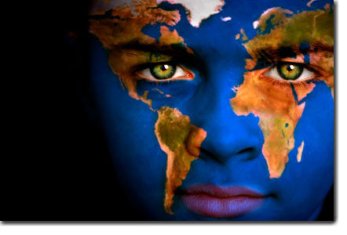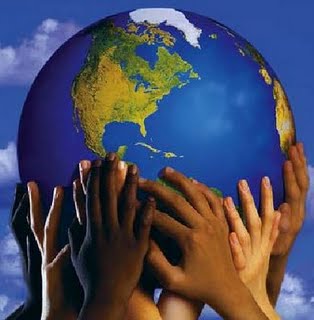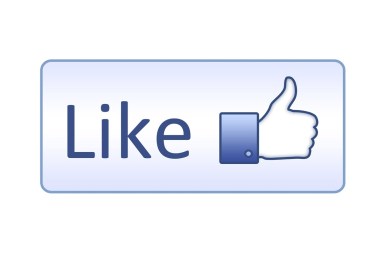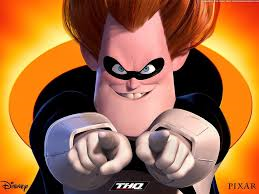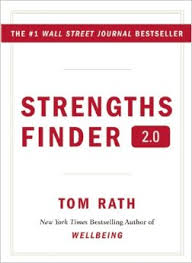 The current state of virtue and vice seems now peculiar and perverse. What was once considered virtue now functions as a sort of vice (or a weakness, if you prefer) while the old vices themselves are lauded as something virtuous. This is in large part due to a shift in the ultimate aim of human action. Gone are the days of describing those attributes that enable or disable our happy disposition as “virtue” and “vice”. The words themselves have even been replaced (now called “strengths” and “weaknesses”). For one small payment of $19.99, you can take a test to determine your strengths and weakness. Don’t pass that bargain up! Oh the many accomplishments you will have with this knowledge.
The current state of virtue and vice seems now peculiar and perverse. What was once considered virtue now functions as a sort of vice (or a weakness, if you prefer) while the old vices themselves are lauded as something virtuous. This is in large part due to a shift in the ultimate aim of human action. Gone are the days of describing those attributes that enable or disable our happy disposition as “virtue” and “vice”. The words themselves have even been replaced (now called “strengths” and “weaknesses”). For one small payment of $19.99, you can take a test to determine your strengths and weakness. Don’t pass that bargain up! Oh the many accomplishments you will have with this knowledge.
Happiness has traditionally been described as man’s end; however, in a consumerist world, success has taken it’s place. They’re not meaningfully different for most people. Today one is not happy if they are not successful; likewise, one is not successful if they are not happy so we are often told (therefore, buy “x”, “y” and “z” and you shall be). I have always found the word “success” vague and broad. Apart from the fact that many people use the word differently (intrinsically valuable things like friendship and love may be a symbol of success for some, whereas extrinsically valuable things such as money and cars may be a symbol of success for another), nobody every tells you what success in fact is; they just tell you if you don’t pay inordinate amounts of money to corrupt bureaucrats at the local University and acquire a degree you will never be successful (and therefore you will be a “loser”. So, buy “x”, “y’ and “z” and you won’t be a loser anymore). But how do you ascertain that “stuff” that won’t make you a loser anymore? Well, duh! You get a job that will pay boat loads of cash.
Now you’re ready to achieve the good life: Long hours working to pay back more money than you initially borrowed, nights fighting with your loved ones over hours spent at the office instead of with them, or not having “enough money” to do this or that (all while rationalizing this ambition and work-obsession under the term “success”). You will have probably betrayed a few “friends” along the way, stepped on a few heads, and sacrificed your integrity (nothing booze, pills and a therapist won’t fix). But, hey, you’re a successful guy now and at your reunion you’ll be the life of the party while everyone says “Wow, look at you Mr. Bigshot!”.
The dynamic of virtue and vice with human completion has not changed, although the meaning of virtue and vice (along with what we think completes us) has no doubt changed. Everyone, either consciously or not, understands with some degree that some attributes, powers, habits or – if you prefer – strengths are necessary in order to reach some end-state where we have achieved some modicum of perfection. Everyone wants to be better than they were yesterday. While traditionally being better than yesterday was an inward venture (a matter of character and spirit), it now begins with the outward and extrinsic. “Stuff”, many of us believe, has the power to heal, satiate, and specify worth and dignity (and so our character). I imagine we look at “successful people” in a very similar way that the ancients idolized and looked at the virtuous heroes of the past. But let’s also not pretend there is something better or more noble in saying that a person with many friends, a strong family, passion and love, honor and respect should be the standard of success.
We often think that by calling these people successful, we have some how excluded them from any different materially obsessive lifestyle. But are they, at bottom, any different? They still look at their friends and strong family bonds, their love and passion for life, their faith and whatever else we might call a more “noble success” as something they own. To them, these things are like products. Saying they’re successful for having these things is like saying they have some better version of these things as opposed to the kinds of things so-called materialistic people have. At bottom, both kinds of people are materialistic, because both treat these things as objects for personal use and gain alone. While the materialistic person is open about his superficiality, the person of “noble success”, as I am calling it here, hides behind this façade that he is some how different than those “materialistic assholes”. The truth is, in our consumerist world, even truly non-material things, like faith and home, are reduced to something we own, possess, and exploit as symbols of success (and so we think of as happiness).
This of course only cheapens these good things, since we refuse to look at them for their true worth. Of course they are much more than “items” or “objects” that we own but we now sort of need to see them like this, because possessing things is now some how directly correlated to happiness. It’s what we have in our life that symbolizes we are in fact happy people. This might explain the popularity of social media, like Facebook and Snapchap because they provide us with the means to constantly demonstrate – real or not – the many wonderful things we have. It can be a relationship or maybe just a pumpkin spice latte from Starbucks (but by God you are going to know I have these things in my life). And so relationships, like lattes, become entirely something I have, that I own, that I possess, and drink up for my satisfaction rather than (and more importantly) something I am apart of with another. Rather than cherishing and nurturing it, we wish to consume our relationships and exploit it, like any product, until there is nothing left to be had of it just so long as we are affirmed in our having the stuff that determines and specifies we are exactly who and what we need to be. Afterwards, we will just find another one. It’s no surprise why relationships are so superficial today – they’re just like any other product we use for a time (and like all products there will always be something better and more appealing sooner rather than later).
The virtue-happiness relationship of old is different from the virtue-happiness relationship of today, or more properly the strengths-success model. As it was, happiness entailed having real goods necessary for the realization of it. Thus, happiness is only achievable through these goods. Instead virtue has now become the more modern concept of “strengths” (vice now “weakness”), and these strengths receive their value if and only if success is realized in an individuals life. Thus, success is not achievable through supposed strengths; in truth, there is no absolute reality of strengths, which is why it is so popular to discover your personal strengths. But one only discovers their strengths by supposedly achieving certain successes in their life. So one might say they have the strength of “drive” because they never think about anything else but having what it is they want. Another way of describing this so-called strength is “goal oriented”, while common sensible people just see it for what it truly is: obsession and destructive ambition. You see, we no longer live in a world where virtues are applicable to a human nature found in every human being. This “drive” may be a strength for some, but a weakness for others (and only by achieving success can we and will we know whether this or that is a strength or weakness). More concisely put, if you have everything you want then look to those things that helped you ascertain them and you will see your strengths. Did you betray friends, lie to people, partake in opportunistic behavior? That’s okay! You can call that “adaptability”. Did you never spare a cent for anyone, always motivated by an ever evolving need for more? Call this being “frugal”. Do you always do what you want, never listen to anyone but yourself, and see yourself as the best possible manifestation of humanity? You can call this “Confidence”. And for just $19.99, you too can learn your strengths (through a test, created by “professionals” and “Doctors” of Psychology; or, more accurately put, by people who, through their “strengths”, take advantage of you and your wallet for their success).
Virtue is now diseased, like the spirit of man, because it’s value and worth is also wholly specified and determined by the products we own. So, what was once thought to be a virtue, like honesty, can now possibly be a weakness (if it prevents you from having what you want and being who you wish to be). What was once vice, like selfish ambition, can now be a strength (if it helps you achieve what you want and be who you wish). A virtue or vice – now more properly understood as a “strength” or “weakness” – is only understood to be such if they bring us to or prevent us from having what we want. Success – and so the things we possess and own – has redefined virtue and vice and any good, traditional person who would see the necessity of true virtue restored would do well to examine themselves and rid themselves of these modernistic and consumerist notions.
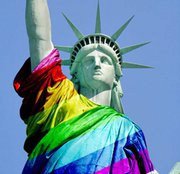 were never without the constant reminder of America’s past transgressions (and so it’s ugliness) by our Liberal brothers and sisters. Of course, this was always passed off as a means to temper the excessive and misplaced pride of Conservatives who allegedly delude themselves (and some do, make no mistake) about the awesome nation that is America. But, as I suspect, it was always more of a hidden disdain for the traditions (now almost non-existent) that characterized America. Veterans loved to fight for these values and citizens loved to thank them for it.
were never without the constant reminder of America’s past transgressions (and so it’s ugliness) by our Liberal brothers and sisters. Of course, this was always passed off as a means to temper the excessive and misplaced pride of Conservatives who allegedly delude themselves (and some do, make no mistake) about the awesome nation that is America. But, as I suspect, it was always more of a hidden disdain for the traditions (now almost non-existent) that characterized America. Veterans loved to fight for these values and citizens loved to thank them for it.